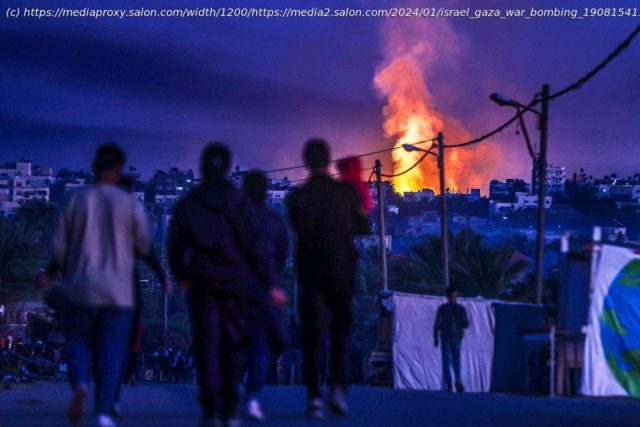Does America take the Tokyo Principles seriously?
Since Hamas’ horrific attacks of October 7, the Biden administration has been clear and consistent in its expectations for the eventual outcome of the Israeli military offensive that has devastated the Gaza Strip. Early on, President Biden laid out his red lines for post-conflict policy in Gaza. “To start, Gaza must never again be used as a platform for terrorism. There must be no forcible displacement of Palestinians from Gaza, no reoccupation, no siege or blockade, and no reduction in territory. And after this war is over, the voices of Palestinian people and their aspirations must be at the center of post-crisis governance in Gaza.”
Secretary of State Antony Blinken doubled down on the president’s position at a speech in Tokyo, echoing Biden’s prohibitions against forced displacement, reoccupation, reduction in Gaza’s territory, use of Gaza as a platform for terrorism, and besiegement. The administration is now referring to those five prohibitions as the “Tokyo principles,” holding them up as the basis of U.S. policy regarding Gaza.
As the violence and regional volatility continue to escalate, the administration is running out of time to use its leverage to help shift us away from more devastation and certain catastrophes.
Principles, rather like New Year’s resolutions, often are incredibly worthy. The trouble is with their implementation — and the gulf between their stated principles and what the Biden administration has thus far accepted from its Israeli partners is stark.
First off, the notion that Gaza shouldn’t be used as a platform for terrorism isn’t controversial. The horrific acts of October 7 have rightfully been condemned, including by my organization, repeatedly. Yet, the administration’s endorsement of a military solution to destroy Hamas fails to engage with our very own history of trying to defeat terrorism on the battlefield. Two decades of war in Afghanistan ended without eradicating al Qaeda and the Taliban back in charge. In Iraq, a war premised on removing the threat from Saddam Hussein’s regime resulted in violent instability and directly spawned the horrors of ISIS, requiring another war to which the U.S. is still committing troops. And throughout the parts of northern Africa where the war on terror has expanded, the results have been spreading violence, military coups, and a surge in the number and power of extremist organizations. While ‘mission accomplished’ has been declared more than once, the failure of our own war on terrorism is crystal clear.
Even Biden’s own Secretary of Defence, Lloyd Austin, said: “If you drive [civilians in Gaza] into the arms of the enemy, you replace a tactical victory with a strategic defeat.






